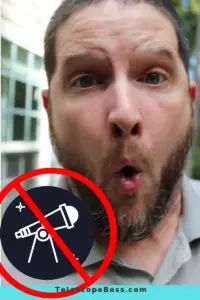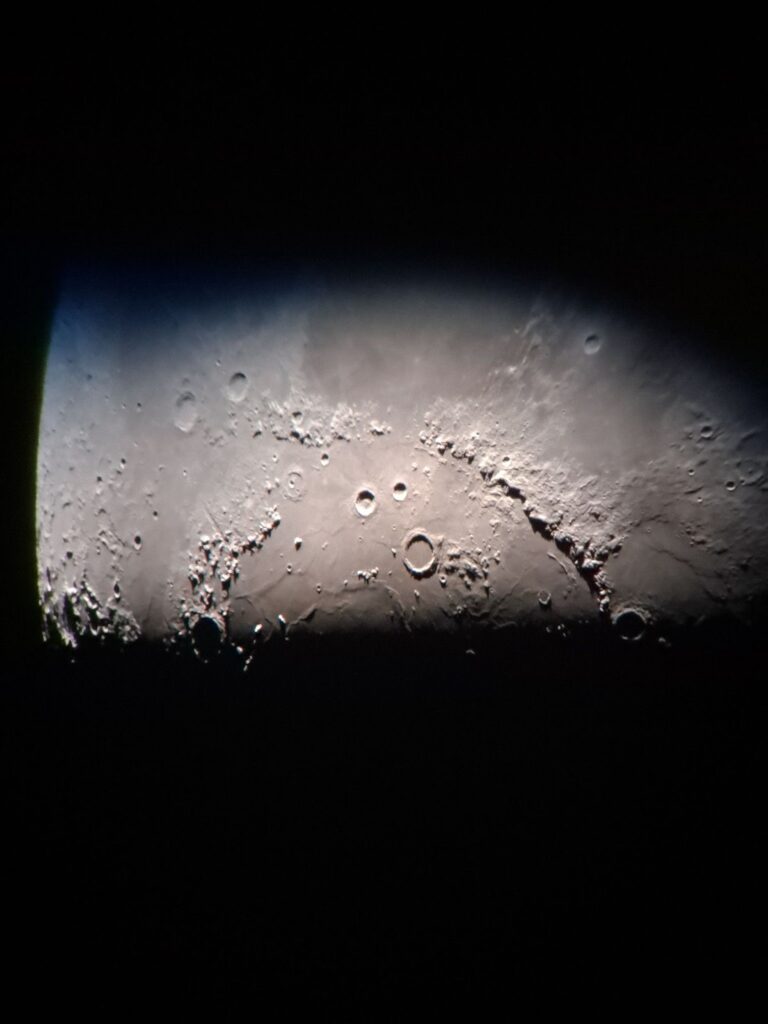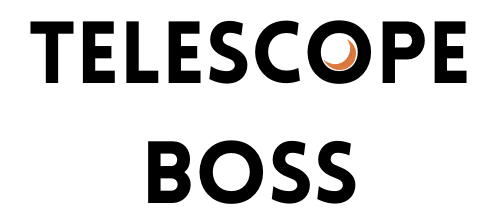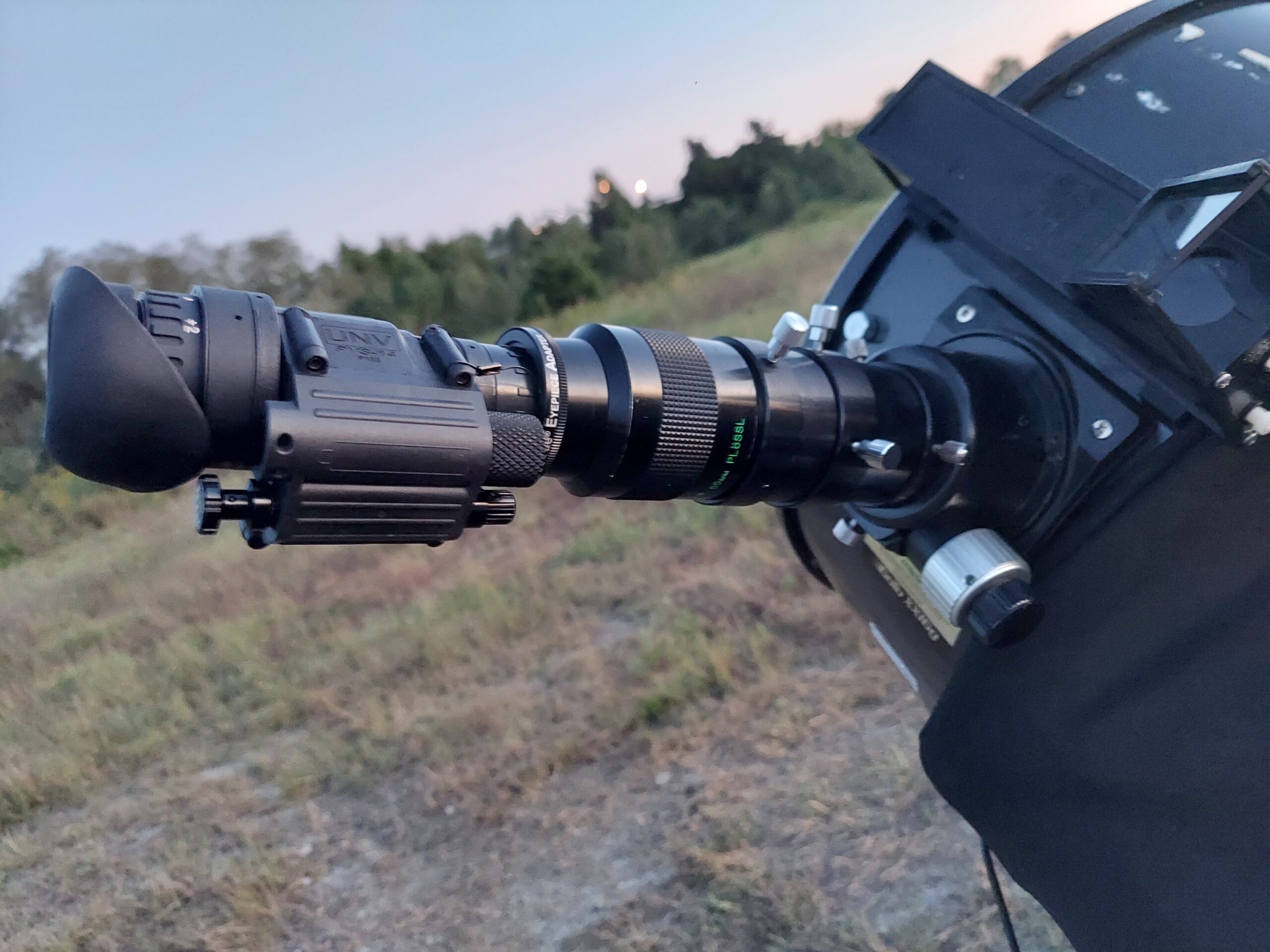The term hobby killer is thrown around on forums almost daily. There are some telescopes that people commonly call worthless hobby killers. There are other things that are bigger hobby killers than your equipment.
A hobby killer is what many astronomers call a telescope that is difficult for a beginner to use and may be of low quality or high complexity. These telescopes make astronomy difficult to enjoy, and make it difficult to fall in love with observing. Other things like a demanding work schedule, lack of knowledge, and poor weather conditions are also hobby killers.
When I talked to a bunch of astronomers about what they thought was the biggest hobby killer, the answers were insightful and really surprising. They talked about family obligations, work schedules, humidity and even tarantulas!

If you are considering getting into this hobby, keep reading and dodge these hobby killers. Make sure that when you get a telescope that you are sure to use, not hang clothes on.
The Real Hobby Killers
1. Family
This one came up a lot, plenty of my astronomy community cited their wives or their families as hobby killers.
Be sure to set clear expectations with your partner and family. This is a hobby that takes time and patience. If you are traveling to dark skies, it takes even more time. Be sure your family supports this hobby and be ready to involve them. Observe from home whenever possible, and share your excitement.
Talk to your family about what you are seeing and why it is exciting to you. Watch documentaries on space, share new discoveries. It can be very romantic to wake up your spouse to see the rings of Saturn on a crisp fall morning, believe me.
I understand what they are saying, it is hard to get out with my scope when you have a family that loves you and wants to spend time with you.
I have young kids, so it is right around bedtime that I am wanting to head out, and I like to get out early to give my scope time to acclimate. This is hard on my wife, who then has to handle bedtime on her own. I try to be respectful of that, and not do it too often.
We are looking at getting a small camper so we can drive out to observing sites and all be together, if it is in the budget, a mobile observing station could be a cool solution. The kids love being in the camper and we have all the comforts of home, but under darker skies.
2. Weather
Cloud cover, humidity, temperature and atmospheric conditions all must be considered when you are setting up to observe. If all this is favorable, you still need to check the moon phase and bortle score!
I had no idea how much the weather would impact this hobby!
I find myself checking the weather multiple times a day. I use the app Astrospheric, it shows me the cloud cover, the temperature, seeing conditions, dew point and lots of articles to help you understand how the information impacts observing.
If you are just getting into the hobby, download the free app and track the conditions for a few days.
This can give you a good understanding of how the weather will impact the hobby in your area.
I live in the American South and there is a lot of humidity for most of the year. It was imperative to me to get a good active dew control system. My detailed system is explained in this post and on my YouTube channel: Telescope Boss.
One guy in my astronomy group listed the Florida humidity as his biggest hobby killer.
Dew and humidity make seeing impossible because it puts a thin layer of water on the mirrors so they cannot reflect the light.
There is so much more to say about acclimation, and if you are considering this hobby go ahead over to this post to learn a bit more.
3. Bugs and Animals
Mosquitos, spiders, racoons, even bears and tarantulas have been hobby killers for some.
I use this Repel Lemon Eucalyptus bug spray from Amazon, I heard about it on Cloudy Nights forums and I grabbed it because the bugs were really killing the hobby for me.
It was cheaper than Thermocell, which is the gold standard, and recommended by lots of folks in the community.
I like to travel to dark sky areas, but you need to remember that those are places that are remote and home to some dangerous wildlife. Do your best to be aware of your surroundings when observing in a new place.
When I am at home observing, there are racoons walking past me activating my security motion lights, and I have had more than one encounter with a skunk in a remote parking lot.
I have even heard a story of a guy unknowingly setting up in the path of a tarantula migration. Seriously, I don’t know how you would know to avoid that, but I guess anything could happen.
5. Expectations
If you love space, I am sure you have spent time looking at gorgeous images shared in Facebook Groups or even from NASA. It wont look like this through your telescope, no matter how good it is.
Stars look like points of light, but you can see details on planets like Saturn and Jupeter.
Galaxies and Nebulas just look like fuzzy smudges.
Learning the sky and hunting for objects makes it very exciting to see those smudges.
Take a look at a few shots I have taken through my telescope with my phone. I just took these hand held through a telescope not designed for astrophotography.
The moon and M 13.


I was awed by those images, but nothing that would impress my friends.
6. Work Schedule
A demanding work schedule makes observing difficult and stresses those family relationships.
When I first got my scope I was working over 60 hours in a 5 day week. It was hard. I was so excited to observe.
I only had the weekends to look forward to and sometimes the forecast made that impossible, even if the weather was good it could be a full moon. So discouraging.
Sometimes I would leave 10 minutes early and lay on the top of my car and look through binoculars, no set up.
A demanding work schedule can kill the hobby for anyone. We planned vacations to dark sky areas and my family graciously gave me the time when I was home to learn the sky.
I spend time during the day to line up my finders, read my books and get prepared for the short time I had to observe.
Spend time learning and invest in binoculars if you have a demanding work schedule.
7. Lack of Knowledge
No matter how good your equipment, your bortle score, your work schedule, it takes patience to learn this hobby.
Having a good resource like Turn Left at Orion, a great beginners guide to learning the night sky, is helpful.
You can study it during the day, then take it out with you at night, just be sure to grab a red flashlight to read without losing your dark adapted vision.
I think that starting out with a manual dobsonian telescope in reasonably dark skies is a great way to fall in love with observing.
Prepare to be challenged, finding objects is exciting, because it is difficult.
I will not soon forget, the first time I was able to observe with my brother, it was so embarrassing. I could not locate anything. We traveled across the country to visit when I was pretty new to the hobby. I was excited to show him so DSOs, but it was a light polluted area.
I dragged him out of bed in the middle of the night and I was only able to find M13.
Now I know about finding doubles, they are easier to see in light polluted skies if there are no planets visible. Everyone loves to see planets.
These things just take time to learn and you need to give yourself time to learn the sky. It also changes with the seasons, so a full year of observing is required before you have any level of confidence.
Telescopes that are hobby killers
Lots of people think that some telescopes are hobby killers, no matter who is using them. When I was doing some research on this, I had a good laugh at this one.
So if you are interested in shopping for hobby killers, keep reading.
There are too many to list, but here are three things to look for:
Poor Quality Assembly
When shopping for a telescope, it can be hard to judge quality. Research the manufacturer of the telescope and choose a well known reputable manufacturer.
Here are a few I have come across:
Orion/Mede
GSO
Televue
Obsession
Takahashi
Celestron
Williams Optics
Explore Scientific
Vixen
Coronado
Hubble Optics
New Moon Telescopes
These brands are well known in the industry. The only one I would caution you about would be Celestron, they sell high quality Schmidt/Cassegrain scopes, but the Bird Jones telescopes are very difficult for beginners. They are almost impossible to collimate.
Mounts
A mount is more important than a scope.
A low quality scope on a high quality mount is better for a beginner than a high quality scope on a poor mount.
There are many kinds of mounts, I only have experience with Dobsonian mounts.
They are inexpensive, easy to use and hard to break.
Equatorial Mounts are more like the tripods you are used to seeing. They are more technical and more expensive.
The difference is the they types of adjustments you can make. An equatorial mount can move at he same arc as the motion of the earth. It is necessary if you plan to do astrophotography.
Dobsonian mounts move left to right and up and down. You can track for visual observing, but not perciciely or smoothly enough for long exposure photography.
Accessories
Most telescopes come with low quality eyepieces and a finderscope.
These accessories are worthless to a beginner.
Eyepieces that are low quality make the image low quality, blurry, and elongated.
A finderscope makes it a bit harder to find things in the night sky. They provide similar magnification as a pair of binoculars, but because of the logistics of looking through a telescope, it makes it harder to find objects reliably.
I recommend a telrad for beginners. I have a bunch more information on that in this post.
What telescope should I get for a beginner?
Get a dob.
That is probably what you have read everywhere. That is what I did, and it is sound advice.
My wife was shocked at how big it was when it arrived, so be prepared, this will not be easy to transport!
If you are not planning to observe at home, consider a small dob, even a table top dob will be a good investment as a first telescope.
There have been a lot of things written on this topic, and I am too new to know all the telescopes, the Reddit community is a good resource, as are facebook groups, just be aware you may get some snarky remarks.





